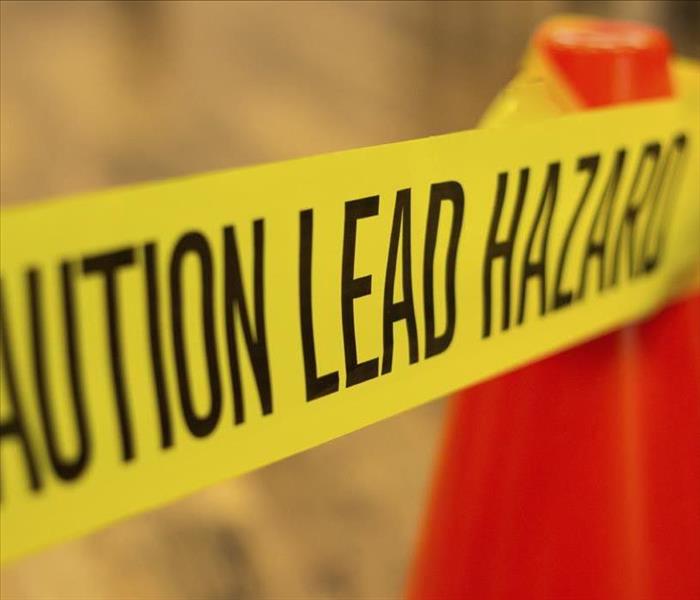Lead Poisoning
5/17/2017 (Permalink)
Lead Poisoning
How much do you know about lead poisoning? Could you and your family be at risk? What are things that you should look for if you were to have a lead problem?
Well these may be a few questions that you may have concerns about when you think of lead poisoning.
Lead poisoning occurs when you absorb too much lead by breathing or swallowing a substance with lead in it, such as paint, dust, water, or food. Lead poisoning occurs when lead builds up in the body, often over months or years.
Lead is a highly toxic metal and a very strong poison. Typically lead is found in the paint of old houses and toys but it may also be found in art supplies and contaminated dust.
Lead is more harmful for children because their brains and nervous systems are still developing. Too much lead in a child could cause lasting problems with growth and development, which may affect their behavior, hearing, and learning.
In adults, lead poisoning can damage the brain and nervous system, the stomach, the kidneys, and may cause high blood pressure.
The good news is that Lead poisoning is treatable, and although it is not normal to have lead in your body, a small amount is present in most people.
Common Symptoms of Lead Poisoning:
- Abdominal pain
- Abdominal cramps
- Aggressive behavior
- Constipation
- Sleep problems
- Headaches
- Irritability
- Loss of developmental skills in children
- Loss of appetite
- Fatigue
- High blood pressure
- Memory loss
- Kidney dysfunction
For more information on lead or lead removal please visit: https://portal.hud.gov/hudportal/HUD?src=/program_offices/healthy_homes .

 24/7 Emergency Service
24/7 Emergency Service
